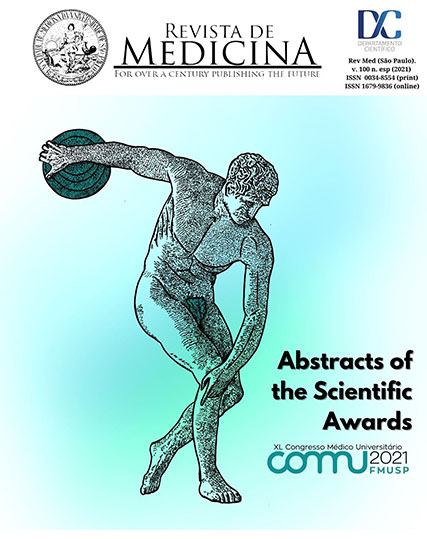Negative self-perceived health in mothers of children and adolescents during the COVID-19 pandemic
DOI:
https://doi.org/10.11606/issn.1679-9836.v100iespp9-9Palavras-chave:
Mothers, Stress, Psychological, Self-assessment, COVID-19Resumo
Introduction: The COVID-19 pandemic represents a major stressful event, drastically affecting the population's quality of life. In this context, self-perception of health stands out as an indicator of health itself, and is increasingly used in epidemiological studies given its validity and reliability. It is strongly associated with the real state of people's health, incorporating their physical, cognitive and emotional aspects, as well as a sense of well-being and satisfaction with life. The individual's perception of feeling sick does not come only from the physical sensations of pain and discomfort, but, above all, from the social and psychological consequences of ill health. Thus, women in particular, due to their social roles and the intensification of their workload, which has been accentuated in the pandemic context, have a higher prevalence of negative self-perception of health, justifying the importance of the study. Objectives: To assess the prevalence of negative self-perception of health in mothers during the pandemic and to relate it to sociodemographic and health variables. Methodology: Cross-sectional study, carried out in the second half of 2020, with 822 mothers (aged ≥ 18 years) of children and adolescents, who answered an online questionnaire containing sociodemographic and health variables. Self-perceived health was classified as positive (very good and good) or negative (regular, bad, and very bad). Chi-square and Mann-Whitney tests were used for the analyses. Results: The mothers' mean age was 37.1 years, with 46.8% showing negative self-perception of health. Women who identified with a number of factors (had no partner; had completed ≤ 11years of schooling; were younger; slept fewer hours a night; were unemployed; felt overwhelmed in caring for their children; and suffered violence during the pandemic) had a significantly higher proportion of negative self-perception of health. Discussion and conclusion: The results of our study suggest worrying evidence of mothers' negative psychological response to the COVID-19 pandemic, since the high prevalence of negative self-perceived health may be associated with higher levels of depression, stress and anxiety. Thus, throughout the care process, attention should be paid to the biopsychosocial nature of the phenomena that make up the illness process, especially among the vulnerable population in question. Understanding and monitoring the health and quality of life of mothers during and after the pandemic is essential for carrying out preventive care and health promotion interventions and actions in primary healthcare settings in order to create and optimize policies aimed at managing the effects of this public health issue.
Downloads
Referências
Downloads
Publicado
Edição
Seção
Licença
Direitos autorais (c) 2021 Aline Martins Alves, Guilherme Tosi Feitosa, Nayara Ribeiro Slompo, Sergio Chociay Junior, Edirlei Machado dos Santos, Tatiana Carvalho Reis Martins, Bruna Moretti Luchesi

Este trabalho está licenciado sob uma licença Creative Commons Attribution-ShareAlike 4.0 International License.




